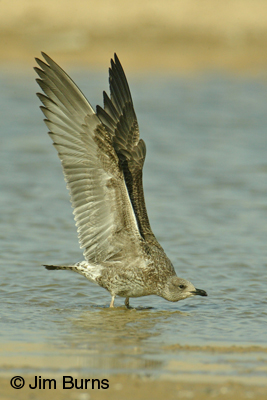
The lead article for this debate was titled "The Dark Side." Its author was unhappy because some of the information contained in the recent explosion of internet birding, posted by novices or those without his years of field experience or level of expertise, is inaccurate. Yes, but I'll bet he didn't send his bank account number to the representative of that small African nation who contacted him via email. When the dubious reports of ivory-billed woodpecker hit the birding street a couple years ago, I received an email from a reader suggesting she might have seen one in her Phoenix yard. I didn't hop in my car and rush right over. The point is, every birder I know with a computer has a "delete" key on that computer.
Let me present "the bright side" of birding on the internet. The majority of birders just want to enjoy birds and add to their knowledge and understanding of them. The internet, instantly and cheaply, brings a whole world of previously inaccessible information to birders' fingertips. Internet birding is here to stay, and we're never going back to the dark ages when birding information was disseminated by word of mouth or telephone chains.
What's more important than whether that odd tern at Tempe Town Lake had a dark carpal bar or not is that the numbers of us who care about our natural environment reach a critical mass that will empower us to do something about saving it. The internet is a tool toward that goal, and to achieve that goal I'll gladly accept a few inaccuracies in my daily diet of internet birding.
To sample for yourself this world of internet birding with a specific application to Arizona, write to listserv@listserv.arizona.edu and type "subscribe birdwg05" without the quotation marks, in the text, not the subject line. That's not a typo in "listserv" in the address, and be sure the key words are in the text, not the subject line. Do this only if you're interested, and unsubscribe by writing to the same address and typing "signoff birdwg05" without the quotation marks, in the text, not the subject line.
There's a lot of wonderful new information about birds out there. Research, learn, and enjoy. Just don't forget that because you read it on the internet doesn't mean it's a fact. The internet is another tool to help spread the good news about birds and the environment we share with them. Why anyone with an interest in birds and our environment would denigrate the use of this new tool is beyond me. My take on this specious debate is "If you have an interest in birds and access to the internet, go for it, baby."